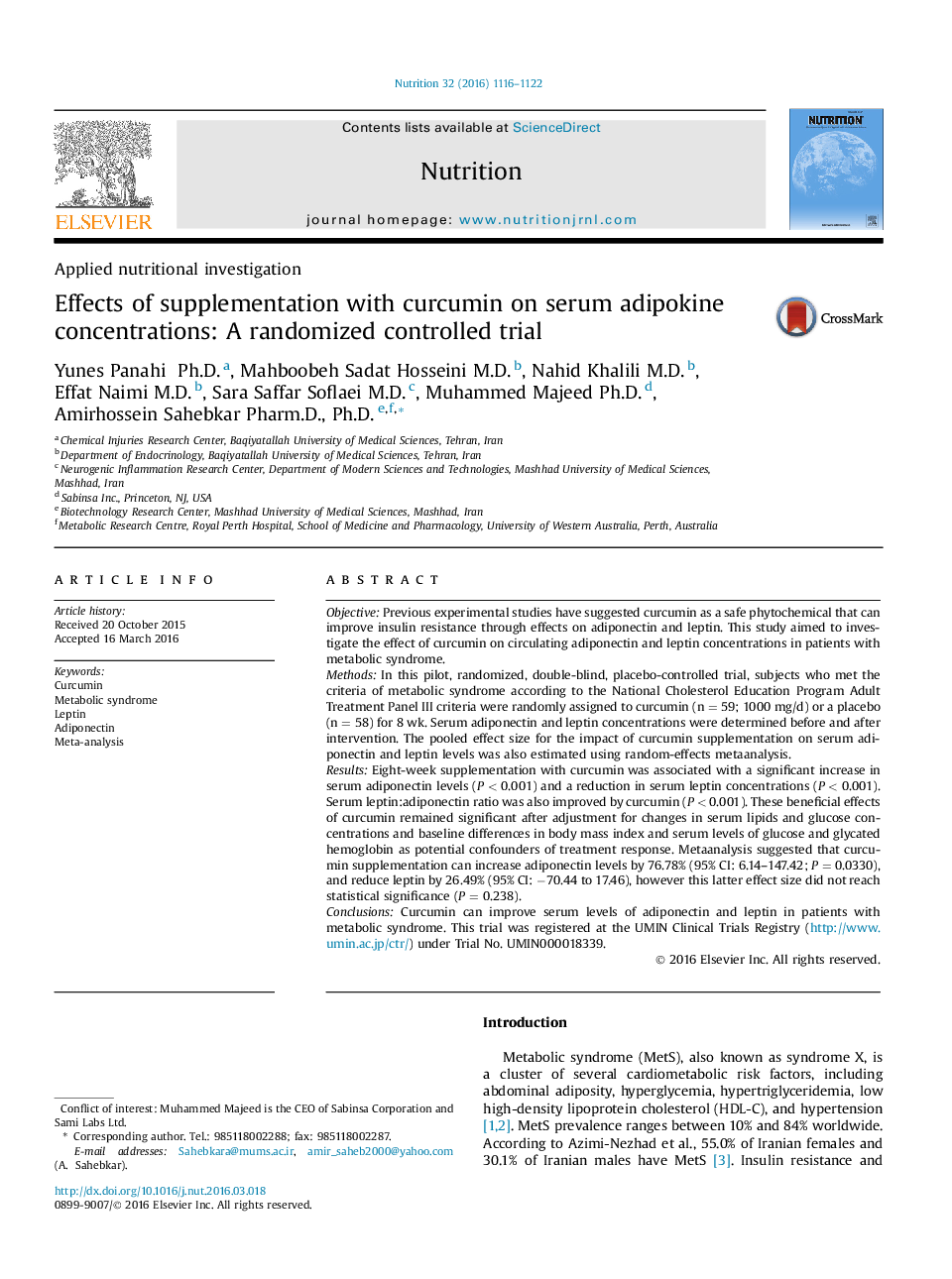| Article ID | Journal | Published Year | Pages | File Type |
|---|---|---|---|---|
| 3276123 | Nutrition | 2016 | 7 Pages |
•Curcumin is a phytochemical with several cardiometabolic benefits.•The effect of curcumin on serum adiponectin and leptin levels was investigated in patients with metabolic syndrome.•After 8 wk of supplementation, curcumin was found to increase serum adiponectin levels.•Serum leptin and leptin:adiponectin ratio were decreased within the same period.•Improvement of circulating adipokines levels may justify the insulin-sensitizing effects of curcumin.
ObjectivePrevious experimental studies have suggested curcumin as a safe phytochemical that can improve insulin resistance through effects on adiponectin and leptin. This study aimed to investigate the effect of curcumin on circulating adiponectin and leptin concentrations in patients with metabolic syndrome.MethodsIn this pilot, randomized, double-blind, placebo-controlled trial, subjects who met the criteria of metabolic syndrome according to the National Cholesterol Education Program Adult Treatment Panel III criteria were randomly assigned to curcumin (n = 59; 1000 mg/d) or a placebo (n = 58) for 8 wk. Serum adiponectin and leptin concentrations were determined before and after intervention. The pooled effect size for the impact of curcumin supplementation on serum adiponectin and leptin levels was also estimated using random-effects metaanalysis.ResultsEight-week supplementation with curcumin was associated with a significant increase in serum adiponectin levels (P < 0.001) and a reduction in serum leptin concentrations (P < 0.001). Serum leptin:adiponectin ratio was also improved by curcumin (P < 0.001). These beneficial effects of curcumin remained significant after adjustment for changes in serum lipids and glucose concentrations and baseline differences in body mass index and serum levels of glucose and glycated hemoglobin as potential confounders of treatment response. Metaanalysis suggested that curcumin supplementation can increase adiponectin levels by 76.78% (95% CI: 6.14–147.42; P = 0.0330), and reduce leptin by 26.49% (95% CI: −70.44 to 17.46), however this latter effect size did not reach statistical significance (P = 0.238).ConclusionsCurcumin can improve serum levels of adiponectin and leptin in patients with metabolic syndrome. This trial was registered at the UMIN Clinical Trials Registry (http://www.umin.ac.jp/ctr/) under Trial No. UMIN000018339.
